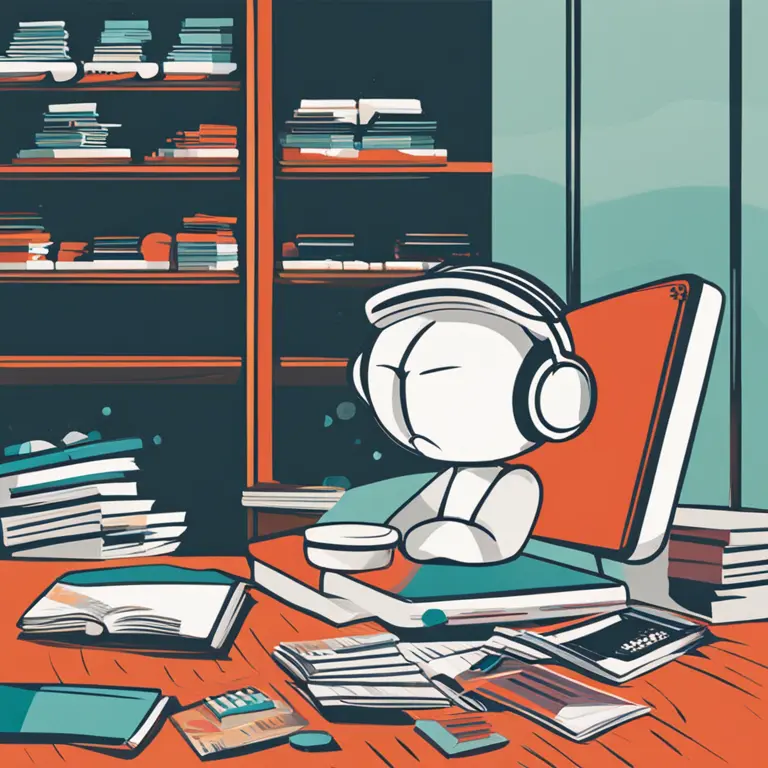
How Meditation Can Alleviate Anxiety Symptoms?
Explore how regular meditation practice can be a potential strategy for managing anxiety and fostering a sense of inner peace.
article by Hina Kurosawa
Understanding Anxiety and Its Impact
Anxiety is a common emotional response characterized by feelings of tension, worried thoughts, and physical changes like increased blood pressure. It can range from mild unease to severe panic, impacting daily life and well-being. Modern living often exposes individuals to stressors that may contribute to heightened anxiety levels. With the advent of new technologies and the pressures of social media, it's more important than ever to find effective coping mechanisms. As we progress further into the decade, the search for holistic and accessible ways to manage anxiety continues to gain momentum among wellness communities.

Meditation as a Tool for Anxiety
Meditation is an age-old practice that involves training the mind to induce a mode of consciousness, allowing for increased awareness and focused attention. The practice has been shown to elicit the "relaxation response," counteracting the stress response that often accompanies anxiety. Techniques such as mindful breathing, guided visualization, and mantra repetition are prevalent modalities within meditation practices. A growing body of research suggests that regular meditation can lead to neuroplastic changes in the brain, positively affecting areas associated with stress and anxiety regulation.

The Science Behind Meditation and Anxiety Relief
Recent studies indicate that meditation can decrease the production of stress hormones, such as cortisol, and enhance the release of neurotransmitters that promote well-being, like endorphins and serotonin. Neuroimaging research has also observed that consistent meditators exhibit strengthened neural pathways in parts of the brain that regulate emotions and diminished activity in the amygdala, which is involved in fear and anxiety responses. Thereby, meditation not only helps in the short-term relief from anxiety but may also contribute to long-term emotional resilience.

Incorporating Meditation into Daily Life
Despite its benefits, one of the biggest challenges individuals face is integrating meditation into their daily routines. Experts suggest starting small, with as little as five minutes a day, and gradually increasing the duration as comfort with the practice grows. It is also recommended to create a dedicated space for meditation to establish a conducive environment. Consistency is key, and even on busy days, prioritizing meditation can help maintain its anxiety-reducing effects.
Different Meditation Styles for Anxiety Management
Meditation comes in various forms, each with unique techniques that can cater to individual preferences. Mindfulness meditation emphasizes present-moment awareness without judgment. Transcendental Meditation uses a mantra or series of words to focus the mind. Progressive relaxation guides individuals through tensing and relaxing different muscle groups. With an array of choices, those interested in meditation for anxiety relief can experiment to find which practice resonates best with their needs and lifestyle.
Expert Guidance and Technological Aids
For those new to meditation, seeking guidance from qualified instructors or using apps that offer structured meditation programs can be helpful. These resources often include step-by-step instructions and tips for optimizing the practice. As technology evolves, innovative tools such as virtual reality meditation experiences and AI-driven personal wellness coaches are becoming more prevalent, providing customizable and interactive ways to engage with meditation.
Published: 1/15/2024
Modified: 1/15/2024
More predictions
Come back here soon to learn more about yourself and your future


Mindfulness Meditation: A Handbook for High Schoolers
Discover how mindfulness meditation can benefit high school students, enhancing focus, reducing stress, and promoting overall well-being.


Easing Loneliness with Meditation
Discover how mindfulness meditation can provide solace and connection to mitigate feelings of loneliness, enhancing emotional and mental well-being.


Discovering Life with Meditation Mantras
Delve into the transformative power of meditation mantras to harmonize your mind, body, and spirit for a tranquil existence.